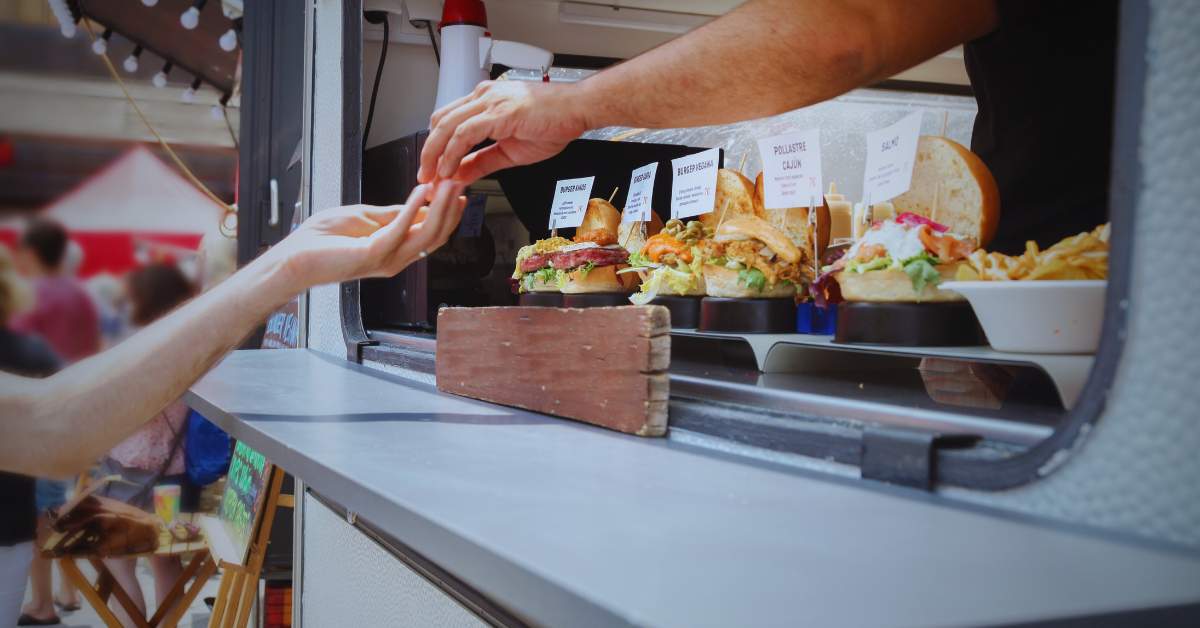Embarking on the journey of launching a small franchise business can be both exciting and challenging for aspiring entrepreneurs. The appeal of this business model is in its relatively lower financial risk, which makes it an attractive choice for those with limited capital.
However, it’s important to remember that a successful franchise requires not only monetary investment but also a significant commitment of time and effort. Building a fruitful relationship with a franchise demands consistent nurturing to ensure a prosperous outcome.
Before making a decisive commitment to a specific business venture, potential franchisees must engage in thorough research. This exploration is essential to gain a comprehensive understanding of the intricacies beyond the surface of a proven business model.
To help entrepreneurs in their quest towards franchise ownership, this guide provides vital information that is essential for a well-informed investigation.
Furthermore, the guide presents a curated list of 7 low-cost franchises, which provides a valuable starting point for new entrepreneurs as they embark on their journey toward franchise ownership.
What is a Small Franchise Business?
In simpler terms, you’ll be using a proven business model (brand, products, etc.) from a larger company, but with the independence of running your own business.
This means you’ll benefit from established brand recognition, operational guidelines, and training programs, reducing the risks and uncertainties often faced by new business owners.
Franchise fees vary, with low startup costs ranging from a few thousand dollars to several hundred thousand. Choose wisely and research low-cost franchises!
How to Evaluate a Low-Cost Franchise Opportunity
Evaluating a low-cost franchise opportunity involves considering various factors beyond just a low franchise fee and minimal staffing needs. Here are some key steps to help you thoroughly assess a small franchise opportunity:
1. Market Research – Understanding the Playing Field

It is important to research the market before purchasing a franchise. It is similar to understanding a racetrack, where you need to know about industry trends, customer demand, future potential, and competition.
Here are some important factors to consider:
- Industry: Determine if the industry is growing, stable, or declining.
- Market Demand: Find out if people want what the franchise offers.
- Future Potential: Consider if the demand for the franchise will remain strong.
- Competition: Identify who the competitors are and how they compare.
- Market Size and Location: Determine if there is room for growth in the market.
Market research is the key to success when it comes to purchasing a franchise. It will help you create a roadmap to success.
2. Franchise Small Business Startup Costs – Know What You’ll Spend

Planning to start a franchise is like preparing for a financial journey. It’s an adventure you need to plan meticulously. To get started, you need to know the costs involved, including:
- the entry fees,
- equipment,
- supplies,
- rent or lease,
- and working capital.
You should also keep in mind hidden costs, such as renovations, build-out, marketing materials, advertising, insurance, and licenses.
To plan your financial journey, you need to create a financial roadmap that outlines all the startup and operational costs. It’s like planning a budget for your adventure.
If you need financing, make sure you secure a funds or business loan to help you run your business. You should also estimate your potential profits and plan for unforeseen expenses to avoid any surprises.
Due diligence is vital before starting a franchise. Review the franchise’s financials and talk to other franchise owners to get a better understanding of the costs involved.
With careful planning and preparation, you can set your franchise up for success. So, pack your business essentials and get ready for the adventure of your lifetime!
3. Talk to Existing Franchisees – Getting Advice from Teammates

Talk to existing small business owners! They’re like teammates who can share their experiences, both struggles and successes. This can help you decide if this new franchise location is your winning team.
- Ask about challenges and triumphs.
- Gauge their satisfaction with the franchise.
- Learn their successful strategies.
- Understand the sense of community and support.
- Get a well-rounded perspective before joining the team.
4. Talk to a Franchise Consultant – Getting the Best Advice From the Expert

Are you considering franchising? It’s always a good idea to consult with an expert to guide you through the complex process and help you find the best fit for your goals.
Here are some reasons why working with a franchise expert can be valuable:
Franchise expertise: They have in-depth knowledge of the industry and different brands.
Personalized guidance: They can provide tailored advice and recommendations based on your unique situation and goals.
Navigating options: They help you navigate the many different franchise options out there and find the right fit for you.
Objective perspective: They provide unbiased advice to help you make the best decisions for your success.
Cost vs. value: While there may be a cost to working with an expert, it can be worth the investment in the long run to avoid costly mistakes.
Network & connections: They can connect you with valuable resources and networks to help you succeed.
To develop a winning strategy for your franchise, it’s always a good idea to consult with a franchise expert.
7 Small Franchise Business Ideas
Starting low-cost franchise opportunities can be a great way to enter the world of entrepreneurship with the support and guidance of an established brand. It is essential to know some low-cost and profitable franchises that align with your interests, skills, and financial resources.
Here’s a breakdown of the five low-cost franchise ideas you mentioned, including their estimated initial franchise fee ranges:
1. Mobile Food Trucks

Owning and operating a mobile food truck that offers various food options to customers on the go. This can range from gourmet dishes like handcrafted tacos or fusion cuisine to classic comfort food like burgers, hot dogs, or ice cream.
Pros:
Mobile food trucks offer a range of benefits such as a lower initial investment than traditional brick-and-mortar restaurants. This is because they require less upfront investment for rent, property taxes, and build-out costs.
Additionally, food trucks offer the flexibility to move to different locations, allowing business owners to capitalize on events, festivals, or high-traffic areas.
Food trucks are often seen as trendy and innovative, attracting customers seeking unique and diverse culinary experiences. The menu can be easily adapted to cater to local preferences, dietary restrictions, or seasonal trends.
Cons:
Obtaining the necessary permits and licenses to operate in specific locations can be complex and time-consuming.
Additionally, this industry is becoming increasingly competitive, requiring effective marketing and menu differentiation to stand out from the competition.
Compared to restaurants, food trucks have limited space for storage, preparation, and cooking, requiring efficient use of resources and equipment.
Franchise Fee
Estimated range: $20,000 – $50,000+
Additional factors to consider:
- Food truck customization: The type of cuisine you offer will influence the customization needed for your truck (e.g., grills, fryers, refrigeration).
- Operating location: Researching local regulations and potential customer traffic at different locations is crucial.
- Developing a strong brand: Creating a unique brand identity and menu that resonates with your target audience is essential for success.
2. Ice Cream and Frozen Yogurt: A Sweet Business Opportunity

Owning a retail store or kiosk offering frozen treats like ice cream, frozen yogurt, and related toppings. This is a popular option for entrepreneurs attracted to the growing frozen dessert market.
Pros
Ice cream and frozen yogurt are popular treats that can be a great business opportunity for aspiring entrepreneurs. The market for frozen desserts has a consistent customer base throughout the year, making it a good choice for those looking for a business with high demand.
Compared to some other businesses, the initial investment required to start an ice cream or frozen yogurt business can be lower, making it accessible to a wider range of entrepreneurs.
Additionally, the business can be scaled up from a small kiosk to a larger store with increased offerings as the business grows.
Cons:
Working in the ice cream or frozen yogurt business can also be a fun experience for both the business owner and staff. However, there are also some challenges to consider.
The initial franchise fee can still represent a significant investment, even if it is lower than some other franchises.
The frozen dessert market is highly competitive, so effective marketing and top-notch customer service are needed to stand out from the competition.
Sales may also fluctuate depending on the season, with potential dips during colder months.
Finally, managing inventory and preventing spoilage requires careful planning and organization due to the perishable nature of the products.
Franchise Fee:
Estimated range: $25,000 – $75,000+
Here are some additional factors impacting costs:
- Equipment: Freezers, ice cream machines, topping dispensers, and other equipment can be expensive investments.
- Location Rent: The cost of rent can vary significantly depending on the franchise locations, size, and foot traffic of your chosen space.
- Inventory: The cost of ice cream, frozen yogurt, toppings, and other supplies can add up quickly.
- Staff Training: Providing training for staff on food safety, customer service, and operating procedures incurs some costs.
Beyond the initial investment, ongoing expenses like utilities, marketing, and royalties (if applicable to your franchise) need to be factored into your financial projections.
Before diving into the world of frozen treats, thorough research is crucial. Consider factors like your target market, competition in your chosen location, and potential profitability to increase your chances of success in this sweet and competitive industry.
3. Cleaning Services: Offering a Fresh Start

A residential and/or commercial cleaning franchise provides services to the ever-present need for a clean and healthy environment. This can be a stable business venture with various service options to cater to diverse customer needs.
Pros:
Regular cleaning contracts offer a steady income, providing financial security. The demand for cleaning services is consistently high, especially with the rise of dual-income households and busy lifestyles.
You can start with a small team and gradually expand your service area and offerings as your business grows.
Moreover, the initial investment is generally lower than other businesses, making it more accessible to a broader range of entrepreneurs.
Cons:
On the other hand, the cleaning services sector is fiercely competitive, necessitating excellent customer service and competitive pricing to attract and retain customers.
Operating a successful cleaning business requires strong recruitment, training, and management of cleaning personnel. The cleaning industry can experience high employee turnover rates, necessitating continuous recruitment and onboarding efforts.
Lastly, effectively advertising your services and acquiring new customers can be challenging.
Franchise Fee:
Estimated range: $15,000 – $50,000+
Similar to the ice cream business, the franchise fee is just one aspect of the financial picture.
Consider these additional factors impacting costs:
- Insurance: Liability and workers' compensation insurance are essential to protect your business.
- Cleaning Supplies: High-quality cleaning supplies and equipment are necessary to ensure optimal cleaning results.
- Marketing: Reaching potential clients effectively requires consistent marketing efforts.
- Vehicles: Reliable transportation for your cleaning crew and equipment is crucial.
- Employee Salaries: Depending on your chosen model, you may need to factor in salaries, wages, or contractor fees for your cleaning crew.
It’s important to carefully assess your local market and create a detailed business plan considering your target audience, pricing strategy, competitive landscape, and operational costs. You can carve out your niche in this ever-growing industry by offering reliable, high-quality cleaning services and building strong customer relationships.
4. Pet Services: Catering to Our Furry Friends

The pet care industry is booming, driven by the growing number of pet owners and their increasing willingness to spend on their furry companions.
One of the cheapest franchises offers pet-related services. Opportunities that offer dog walking, pet sitting, pet grooming, and pet waste removal, can be a fulfilling and profitable franchise venture.
Pros:
It has a high demand for professional pet care services, which means there is a consistent customer base.
Additionally, the business can be scaled up from a single service, like dog walking, to a range of offerings as the business grows.
The flexible schedule is also an advantage, suitable for those who desire a schedule that caters to their personal needs.
Apart from the low initial investment required, building relationships with pets and their owners and providing them with valuable care can be a personally rewarding experience.
Cons:
The pet service industry is becoming increasingly competitive, making it necessary to have effective marketing and excellent customer service to stand out.
Depending on your location and the services offered, you might need to obtain specific licenses or permits, which can be a time-consuming process.
Liability insurance is also crucial to protect yourself from potential accidents or injuries.
Lastly, the job may involve physical activities like walking, bending, and lifting, requiring a certain level of fitness.
Franchise Fee:
Estimated range: $20,000 – $35,000+
Remember, the franchise fee is just the beginning.
Here are additional factors impacting costs:
- Insurance: Liability insurance is essential to protect your business from potential mishaps.
- Vehicle: A reliable vehicle is often necessary for transportation to client locations and equipment.
- Equipment for specific services: Depending on the services offered, specific equipment like grooming tools or pet waste removal supplies might be needed.
- Marketing: Reaching your target audience effectively requires consistent marketing efforts.
- Potential employee salaries: If you plan to expand and hire employees, you'll need to factor in salaries or wages.
Before venturing into the pet service industry, research your local market thoroughly. Analyze competitor offerings, identify your target customer base, and create a sound business plan considering your chosen services, pricing strategy, operational costs, and marketing approach.
By offering reliable, compassionate care and building trust with pet owners, you can establish a successful and profitable business, in this growing and rewarding field.
5. Mobile Services: Taking Convenience to the Customer

Mobile services offer customers the convenience of having various services performed directly at their location, eliminating the need for them to travel. This can encompass a wide range of services, such as mobile detailing, car washes, lawn care, or mobile notary services.
Pros:
Mobile services have become increasingly popular due to their ability to provide convenience to customers while keeping overhead costs low. By eliminating the need for customers to travel, mobile services can attract a wider clientele who value their time and convenience.
Compared to brick-and-mortar businesses, mobile services often require less overhead costs, such as rent and utilities for a physical location.
Additionally, mobile service businesses can start with a single service and a small service area, gradually expanding as their business grows. The mobile service concept can be applied to various industries, allowing entrepreneurs to choose a niche that aligns with their interests and skills.
Cons:
One of the biggest drawbacks is the cost of modifying a vehicle to accommodate the chosen service, which can be quite expensive. Another potential issue is a limited service area, which might be geographically constrained by travel time and practicalities.
Certain mobile services, like car washing or lawn care, might also be impacted by weather conditions, which can further limit their availability.
Finally, reaching the target audience effectively can be challenging, as traditional storefront visibility is not applicable, making marketing efforts more difficult.
Franchise Fee:
Estimated range: Varies depending on the specific service, but generally falls within the $15,000 – $40,000 range.
By focusing on providing exceptional service, and convenience, and building strong customer relationships, you can carve out your niche in this dynamic and evolving business landscape.
6. Home-Based Travel Agency

Operating a travel agency from your home, offering services like booking flights, hotels, cruises, and vacation packages to clients remotely.
Pros:
When considering a career in the travel industry, there are many factors to consider. On the positive side, working in travel offers flexibility and the ability to set your own schedule.
Additionally, there are low overhead costs associated with not needing a physical office, which can help reduce expenses.
Travel also offers scalability, which means that you can gradually expand your client base and service offerings over time.
There may even be potential for discounts or perks on travel for yourself.
Cons:
The travel industry is highly competitive, which means that it requires strong marketing and sales skills to succeed.
Long work hours may be required to accommodate clients in different time zones. Income potential is also limited, as earnings depend on commission structures and client base.
Also, technology is a key component of the travel industry, so reliable internet access and proficiency in travel booking software are important skills to have.
Franchise Fee:
Estimated range: Varies depending on the franchise, typically between $10,000 and $50,000+.
7. Empowering Transformations: Fitness Coaching Franchises

Are you passionate about helping people achieve their fitness goals? Do you thrive on witnessing the positive impact of healthy living? Then consider venturing into the dynamic world of fitness coaching franchises.
Imagine owning a business where you empower individuals to reach their full potential. You’ll provide personalized coaching, guidance, and support, helping clients achieve their fitness aspirations and experience the transformative power of a healthy lifestyle.
Pros:
High Demand: The desire for personalized fitness guidance is constantly growing, fueled by increasing health awareness and diverse fitness trends.
Fulfilling Work: Witnessing clients’ transformations and contributing to their well-being can be incredibly rewarding.
Scalability: You can start with individual coaching and gradually expand your offerings to include group classes, nutritional consultations, and virtual training options.
Flexibility: Depending on the franchise model, you might have flexibility in scheduling and service delivery, catering to your personal preferences.
Cons:
Competition: The fitness industry is competitive, requiring strong marketing strategies and a compelling value proposition to stand out.
Certification requirements: Depending on your chosen franchise and services offered, specific certifications or licenses might be necessary.
Continuous learning: Staying updated on fitness trends and techniques requires ongoing learning and professional development.
Franchise Fee:
The estimated range for fitness coaching franchises varies significantly, often falling between $30,000 and $100,000+.
*Please note: These are estimated ranges based on various sources and can vary significantly depending on the specific franchise, location, and other factors.
It’s crucial to conduct thorough research and contact a franchise consultant to obtain accurate and up-to-date information on their specific franchise fees and associated costs.
Final Thoughts
In conclusion, small franchise business ownership can be a rewarding venture, offering security and the opportunity for prosperity. However, it’s essential to approach it with careful planning, research, and the right support system in place.
By following these steps and considering the low-cost franchise ideas provided, you can increase your chances of success in the competitive world of franchising.
Remember that your commitment, dedication, and passion for the chosen franchise will play a significant role in determining your ultimate success.

